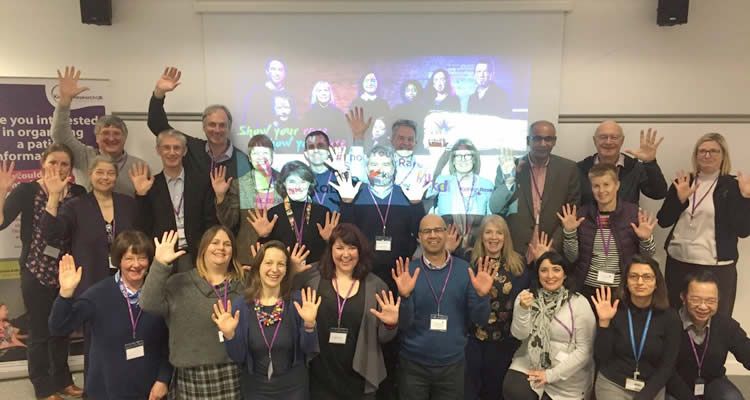
RaDaR Conference on Rare Disease Day 2018
I was very pleased to accompany our very own Tess and Carol (a fellow PKD patient) to the National Registry of Rare Kidney Diseases (RaDaR) conference held in honour of World Rare Disease Day 2018 at the Queen Elizabeth Hospital, Birmingham.
Most hospitals nowadays should be able to give you access to Patient View and likewise, to register you with RaDaR. Radar is quite simply a unique database which holds medical information from over 17,000 UK kidney patients (at 28 Feb 2018) for over 30 different diseases. Despite ADPKD being the most common genetic cause of kidney disease in the world, in the UK we regard ADPKD as a rare disease and there are nearly 4,500 ADPKD patients registered to date. Moreover, there are nearly 200 childen and adults with ARPKD, the rare form of PKD, registered on RaDaR.
This registry is a treasure trove of data which can be used by medical researchers to delve into the science behind our diseases and to hopefully help with finding care programmes specific to the individual. The data is held very securely and to access it is strictly controlled. Personal patient data which could identify you is not available to the researcher, so you can be guaranteed of anonymity.
We listened to talks from several researchers who have successfully utilised the vast data to move the science onwards for several diseases. Sadly we didn’t hear anything specific to PKD, but the ADPKD patients are by far the biggest group in the database. What we need now, is to ensure this registry is kept up to date and is as accurate as possible. This can only be done by your personal clinicians who upload the data.
The RaDaR team wants us to use patient power to ask our clinicians to make sure we’re on it and to make sure our results and medical details are uploaded quickly and precisely.
In terms of kidney research, the registry is hugely important for all our futures and for the futures of our families. It’s a successful showcase for collaboration across the country and in many cases across the globe. Please speak to your clinician next time you see them and give them your consent for RaDaR to hold your data.
- Hits: 61852
